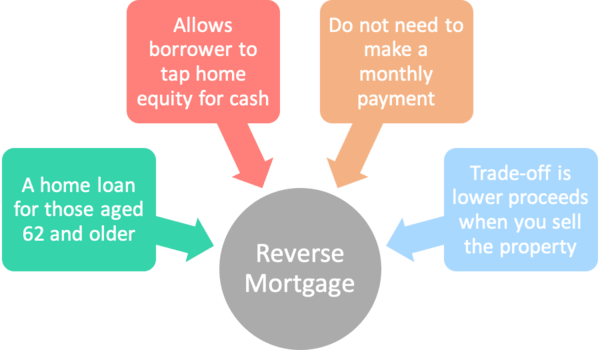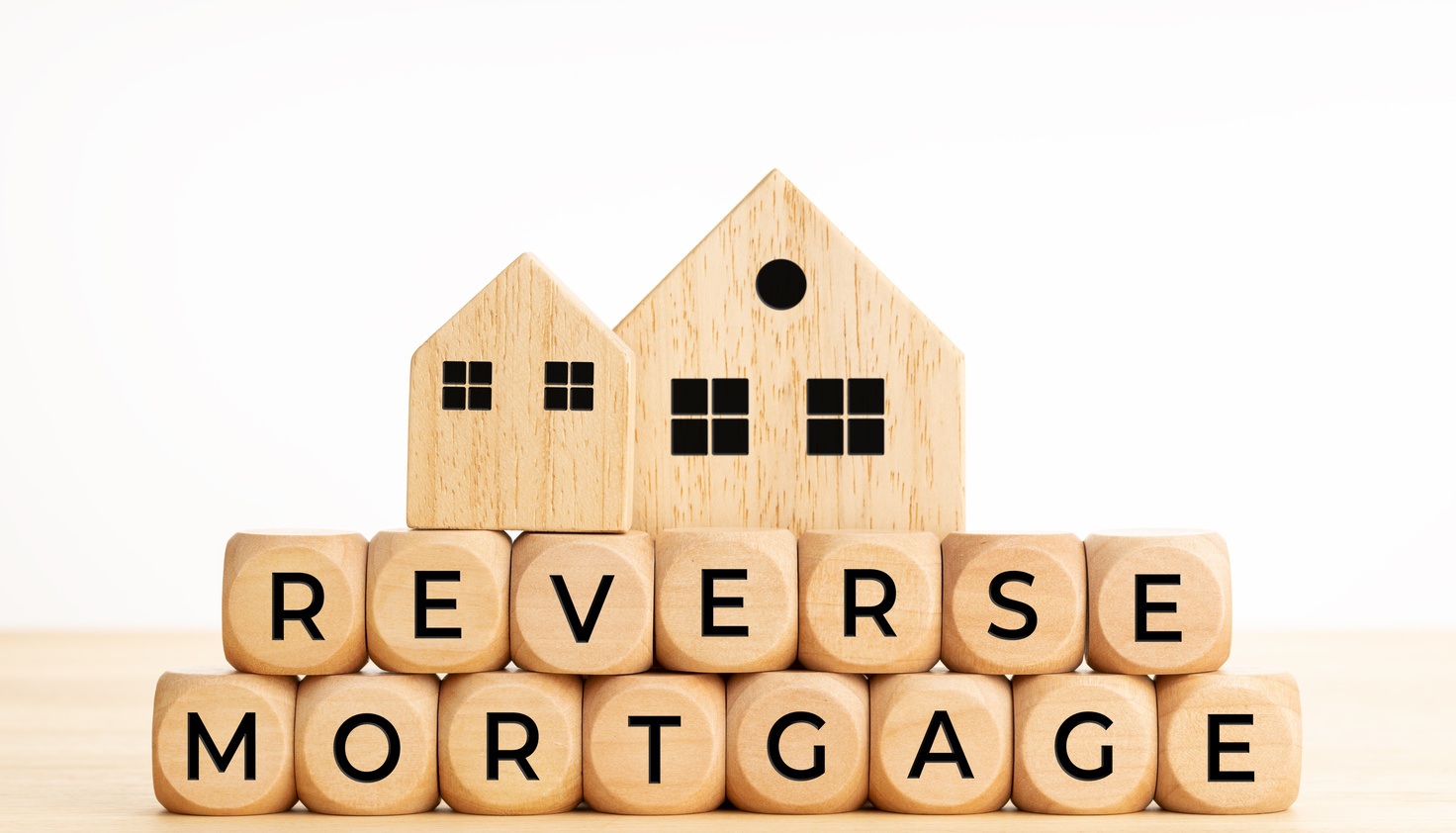A Guide to Help You Purchase Reverse Mortgage for Your Retirement Plan
A Guide to Help You Purchase Reverse Mortgage for Your Retirement Plan
Blog Article
Empower Your Retirement: The Smart Method to Purchase a Reverse Home Loan
As retirement methods, several individuals seek reliable approaches to enhance their financial self-reliance and well-being. Amongst these methods, a reverse home mortgage arises as a sensible option for house owners aged 62 and older, allowing them to tap right into their home equity without the requirement of regular monthly repayments.
Recognizing Reverse Home Mortgages
Recognizing reverse mortgages can be important for home owners seeking monetary versatility in retired life. A reverse home loan is a financial product that allows qualified home owners, generally aged 62 and older, to transform a section of their home equity into cash money. Unlike traditional home mortgages, where consumers make month-to-month payments to a lender, reverse home mortgages enable home owners to obtain settlements or a lump sum while keeping possession of their property.
The amount offered through a reverse home loan depends on a number of elements, including the home owner's age, the home's value, and present rate of interest. Notably, the financing does not need to be repaid until the home owner markets the home, moves out, or passes away.
It is vital for prospective borrowers to comprehend the ramifications of this economic product, including the effect on estate inheritance, tax obligation factors to consider, and recurring duties related to property upkeep, tax obligations, and insurance coverage. In addition, counseling sessions with accredited professionals are commonly needed to make sure that consumers completely comprehend the conditions of the lending. Generally, a detailed understanding of reverse home mortgages can encourage house owners to make educated decisions concerning their monetary future in retirement.
Benefits of a Reverse Home Mortgage
A reverse mortgage supplies numerous engaging advantages for qualified home owners, especially those in retirement. This financial device permits senior citizens to transform a portion of their home equity right into money, providing vital funds without the need for regular monthly home loan settlements. The cash obtained can be made use of for numerous functions, such as covering medical expenditures, making home enhancements, or supplementing retirement revenue, therefore enhancing general financial adaptability.
One considerable benefit of a reverse mortgage is that it does not need settlement up until the property owner leaves, sells the home, or dies - purchase reverse mortgage. This function allows retirees to maintain their way of living and satisfy unforeseen costs without the worry of regular monthly settlements. Furthermore, the funds obtained are generally tax-free, permitting homeowners to utilize their cash money without fear of tax implications
In addition, a reverse mortgage can supply satisfaction, recognizing that it can offer as a monetary security net during tough times. Homeowners additionally keep ownership of their homes, guaranteeing they can proceed residing in a familiar setting. Inevitably, a reverse home loan can be a critical funds, equipping retired people to manage their financial resources effectively while enjoying their gold years.
The Application Process
Navigating the application process for a reverse home mortgage is a vital step for house owners considering this monetary choice. The first phase involves reviewing qualification, which typically calls for the home owner to be a minimum of 62 years of ages, own the residential or commercial property outright or have a reduced home mortgage balance, and occupy the home as their main home.
When qualification is confirmed, home owners should click here now undertake a therapy session with a HUD-approved counselor. This session guarantees that they totally comprehend the implications of a reverse mortgage, including the obligations included. purchase reverse mortgage. After finishing counseling, candidates can continue to gather necessary documentation, consisting of proof of income, possessions, and the home's value
The next action entails sending an application to a lending institution, who will analyze the financial and home credentials. An appraisal of the home will certainly also be conducted to determine its market worth. If accepted, the lending institution will certainly offer financing terms, which need to be assessed thoroughly.
Upon acceptance, the closing process follows, where final papers are authorized, and funds are paid out. Recognizing each stage of this application process can significantly enhance the homeowner's confidence and decision-making relating to reverse mortgages.

Key Factors To Consider Before Getting
Buying a reverse home loan is a considerable financial choice that needs cautious factor to consider of numerous essential elements. Initially, recognizing your qualification is important. Home owners should go to the very least 62 years of ages, and the home needs to be their main home. Examining your economic requirements and objectives is just as reference vital; determine whether a reverse mortgage lines up with your lasting strategies.

A reverse home mortgage can impact your eligibility for specific federal government benefits, such as Medicaid. By completely reviewing these considerations, you can make an extra educated choice regarding whether a reverse home mortgage is the appropriate financial method for your retired life.
Taking advantage of Your Funds
When you have actually protected a reverse home loan, efficiently managing the funds becomes a concern. The flexibility of a reverse home loan enables house owners to use the funds in different methods, but critical preparation is necessary to optimize their advantages.
One key strategy is to develop a budget that outlines your regular monthly expenses and economic goals. By recognizing essential expenditures such as health care, real estate tax, and home maintenance, you can assign funds appropriately to ensure long-term sustainability. In addition, take into consideration utilizing a section of the funds for investments that can produce income or appreciate in time, such as shared funds or dividend-paying supplies.
An additional important aspect is to preserve a reserve. Reserving a book from your reverse mortgage can help cover unforeseen costs, supplying comfort and financial stability. Consult with an economic expert to explore look here possible tax effects and just how to incorporate reverse mortgage funds right into your total retired life method.
Ultimately, sensible administration of reverse home loan funds can enhance your monetary security, permitting you to enjoy your retirement years without the stress and anxiety of economic unpredictability. Cautious planning and educated decision-making will certainly ensure that your funds work successfully for you.
Final Thought
To conclude, a reverse mortgage presents a feasible monetary approach for senior citizens looking for to boost their retirement experience. By transforming home equity right into easily accessible funds, individuals can resolve necessary expenses and safe added economic resources without sustaining month-to-month payments. Nonetheless, mindful factor to consider of the connected ramifications and terms is important to make the most of benefits. Eventually, leveraging this monetary tool can promote greater independence and boost overall lifestyle during retired life years.
Understanding reverse home loans can be essential for property owners seeking financial adaptability in retirement. A reverse home loan is a financial item that permits eligible property owners, usually aged 62 and older, to convert a part of their home equity into cash money. Unlike typical mortgages, where customers make month-to-month repayments to a lender, reverse home mortgages make it possible for house owners to receive settlements or a swelling sum while maintaining ownership of their home.
Generally, a comprehensive understanding of reverse mortgages can equip property owners to make enlightened choices about their economic future in retirement.
Consult with a financial expert to explore feasible tax effects and how to integrate reverse mortgage funds into your total retired life approach.
Report this page